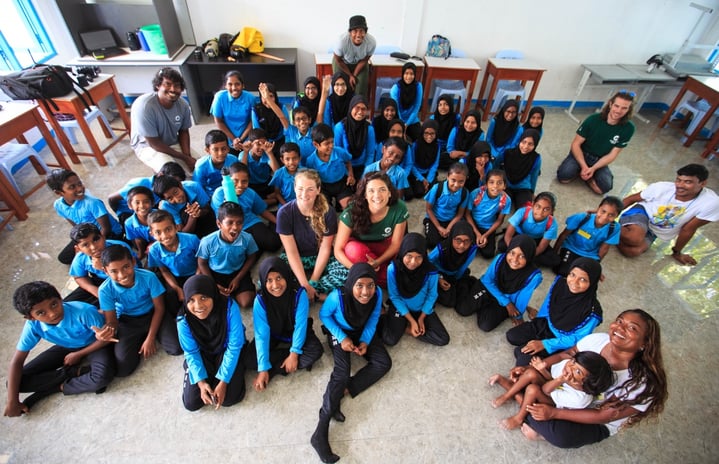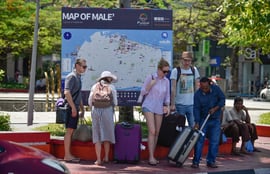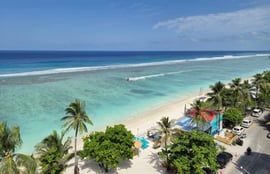The Stand Up for Our Seas team were greeted with favourable winds and current when they struck out from Dharavandhoo to Maalhos on Tuesday morning.
In light of the agreeable conditions, the team decided to cover the day's leg in one go, paddling past their stops of Maalhos and Soneva Fushi all the way to Eydhafushi, where they were to spend the night. They successfully clocked in 10 kilometres despite a strong current, which meant the paddlers were heavily reliant on one side instead of alternating strokes.
Despite the physically challenging feat, the team's spirits lifted upon making their way to Maalhos from Eydhafushi for their planned activities.
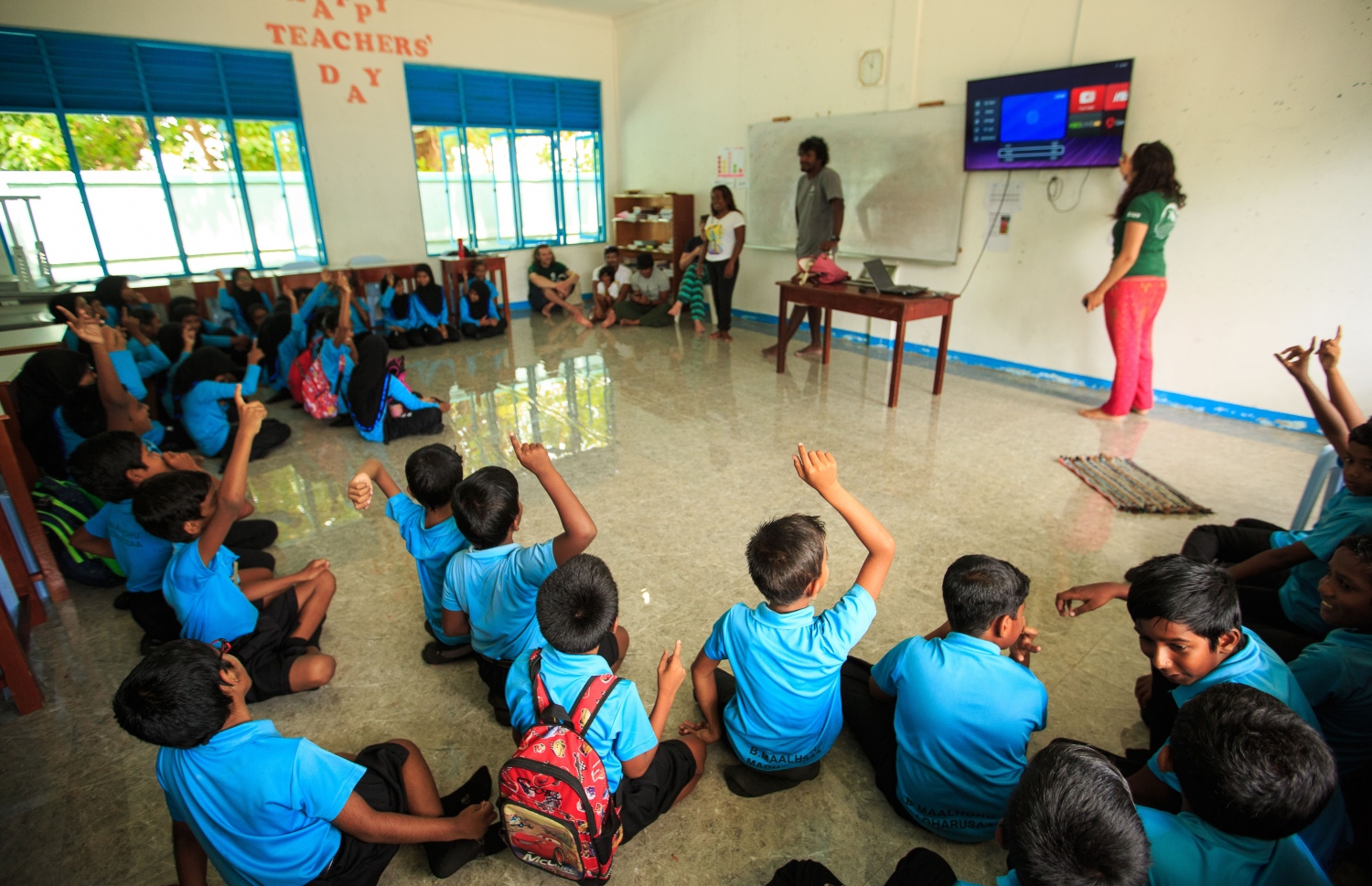
"After our presentation, the students of Maalhos gave their own presentation, which was very interesting," said team member and personal trainer, Dhafeena Hassan Ibrahim.
"It was about [the environment friendly practices] they do in their island, such as waste segregation and how it benefits them".
The people of Maalhos, Stand Up for Our Seas discovered to their pleasure, were an exemplary community. Every household segregated their waste, separating biodegradable materials from plastics and other materials - a practice still uncommon across the Maldives - which ultimately makes wide-scale segregation at the landfill easier.
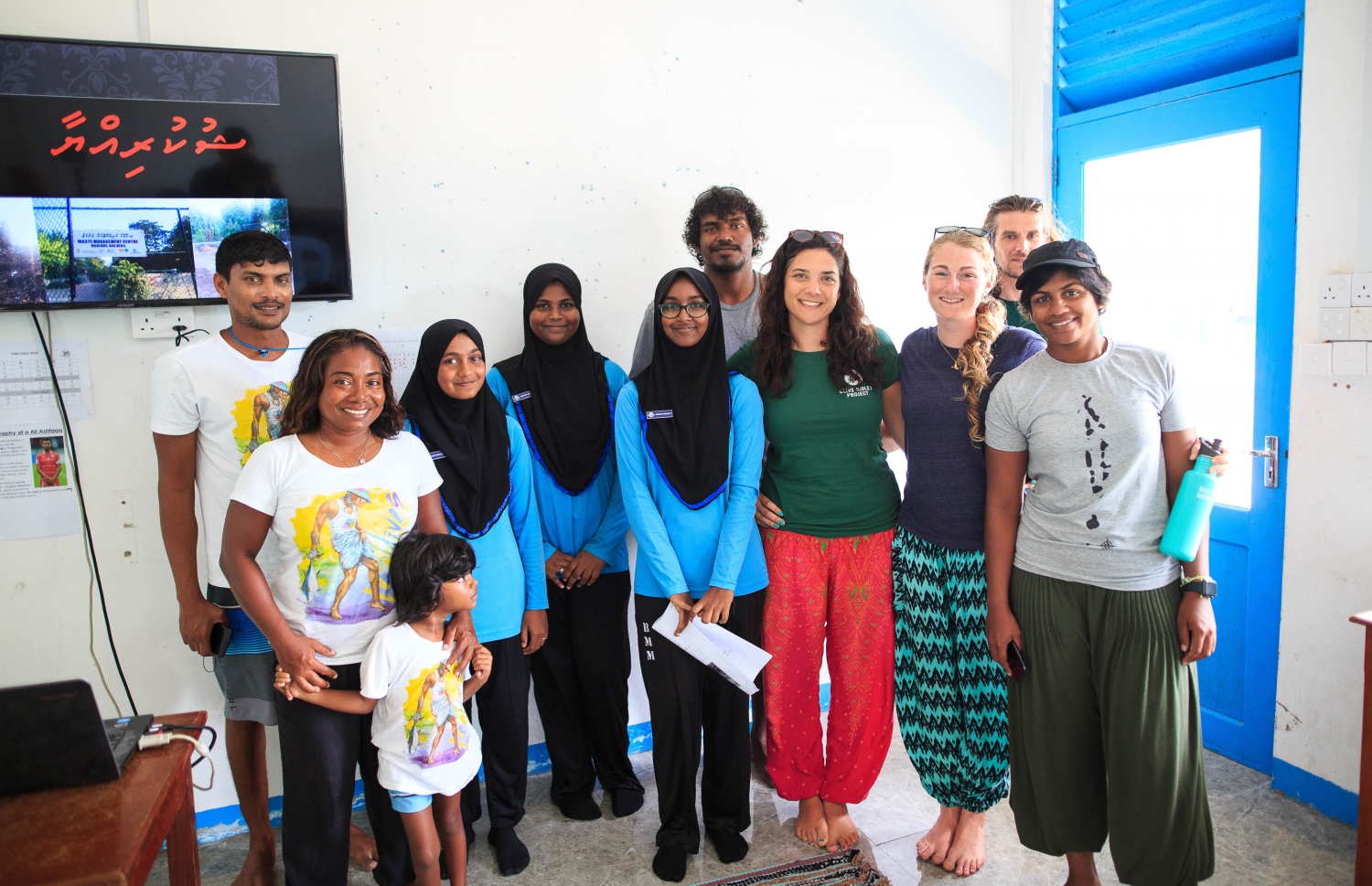
In their presentation, the students also highlighted that the people of Maalhos refrained from using chemicals in compost-making, and that regular cleaning of the island and its beaches highly benefited local tourism.
"In the future, they want to see more locals involved in compost-making," said Dhafy.
"Fifty percent of waste can be made into compost".
After the inspiring morning with the students of Maalhos School, the four women set off Tuesday afternoon to their next stop of Soneva Fushi, the pioneer of eco-tourism in the Maldives.
